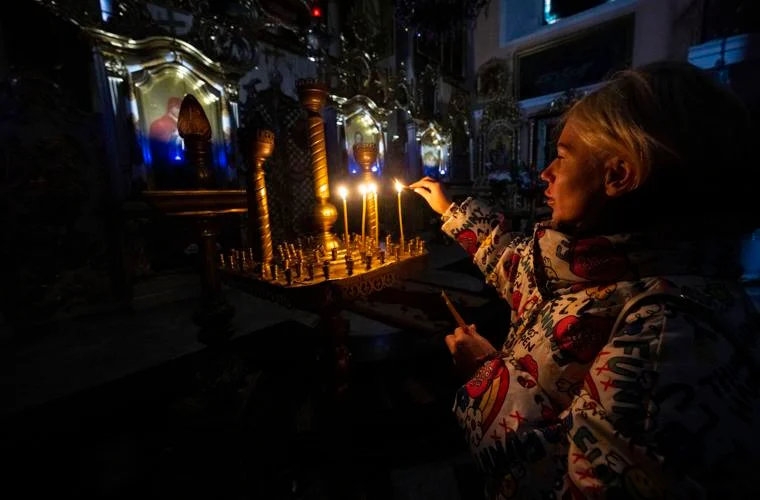Originally posted on Gazette.com
By: CHRISTIAN MURDOCK, christian.murdock@gazette.com
While visiting her war-torn country in December, refugee Yana Malyk was reunited with her parents, and saw, firsthand, the impact of the war-relief work she’s done from the Springs.
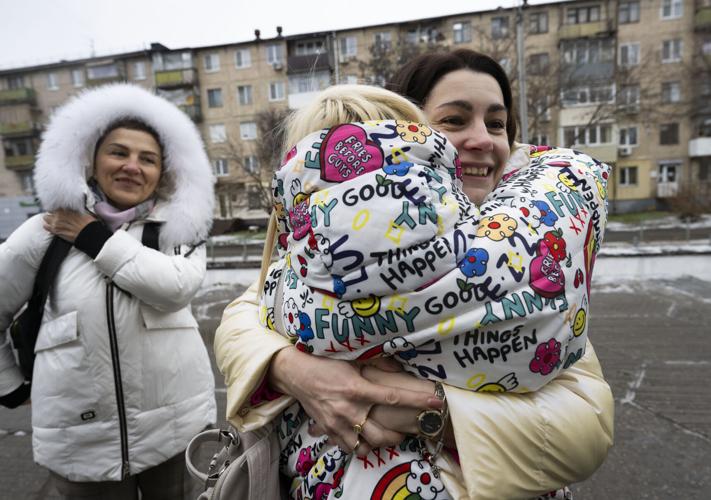
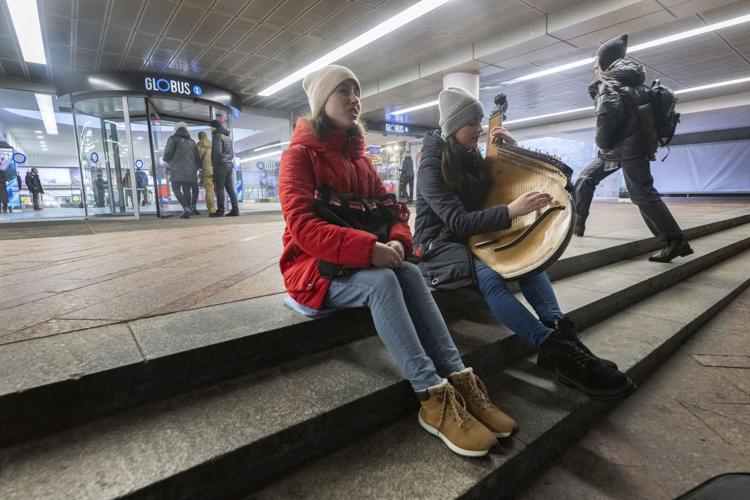
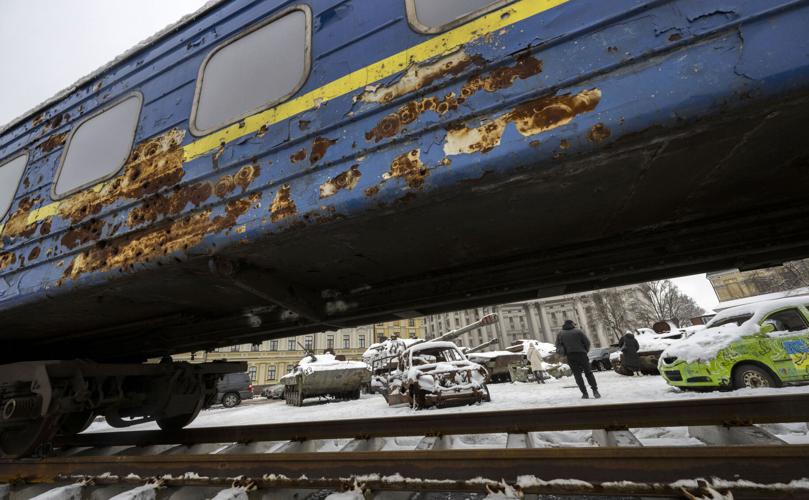
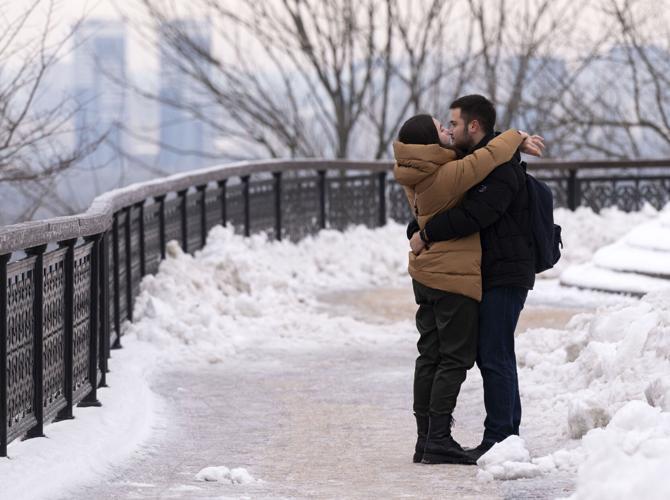
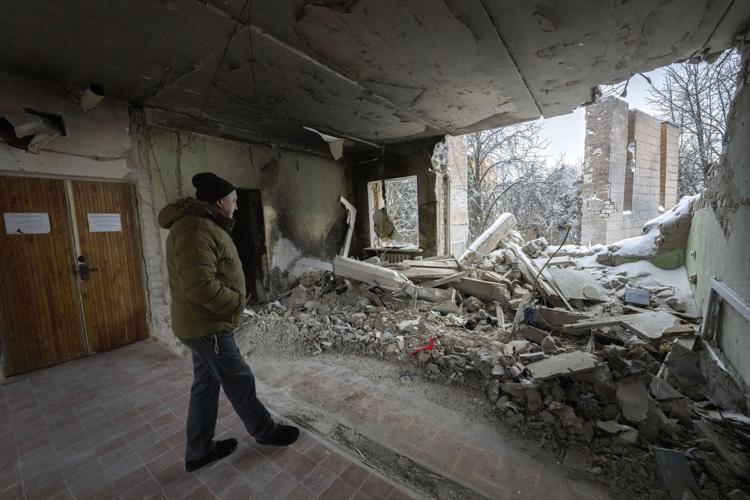
Yana Malyk looked out the train window into the darkness of eastern Poland, the faint lights of distant farmhouses illuminating the landscape on the cold December night. Malyk had boarded the eastbound train in Katowice, Poland, destined for the final stop in Prezmys’l, 4 miles from the Ukraine border. She became more excited with each passing station.
Her parents were waiting on the Ukrainian side. She hadn’t seen her mother in 16 months. Her father in two years — since before Russia invaded her homeland.
The train arrived in Prezmys’l after 10 p.m., an hour late. She worried there wouldn’t be transportation to the border. She was relieved when she walked outside to find a shuttle bus waiting. Buses make her motion sick, and she’d hoped for a taxi, but a family reunion awaited.
The bus drove though the winding roads from the eighth century Polish town to the border, the smell of diesel fumes in the cabin intense. Yana fought back nausea.
Cars and semitrailers with their cargo lined the shoulder of the highway for miles, waiting to enter Ukraine. The bus drove past, stopping at a parking lot on the Polish side of the frontier.
Malyk hurried off the bus and dragged her suitcase through the snow along a sidewalk lined by fencing with concertina wire. She entered the Polish customs building. No line, just one Ukrainian family ahead of her. An agent spoke to her in Polish and seconds later stamped her passport. Off she went. On the Ukraine side, one more customs agent stood between her and her parents.
She held back her tears.
“I thought, ‘don’t cry,'” she would later say, “but I couldn’t wait to see them.”
The Ukrainian customs agent stamped her passport and she burst through the door into the arms of her father and mother, waiting outside in the cold.
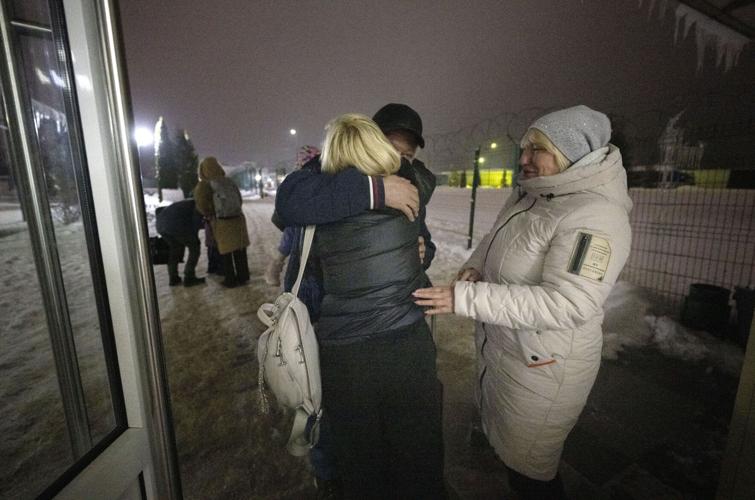
Midnight had come and gone by the time they drove to her parents’ condo in Truskavets, 45 miles away. They feasted on a Ukrainian dinner including borscht, pickled fish, and cabbage and beet salad. Shots of vodka were raised in numerous toasts to the reunion that went on amid laughter and tears until 3 a.m.
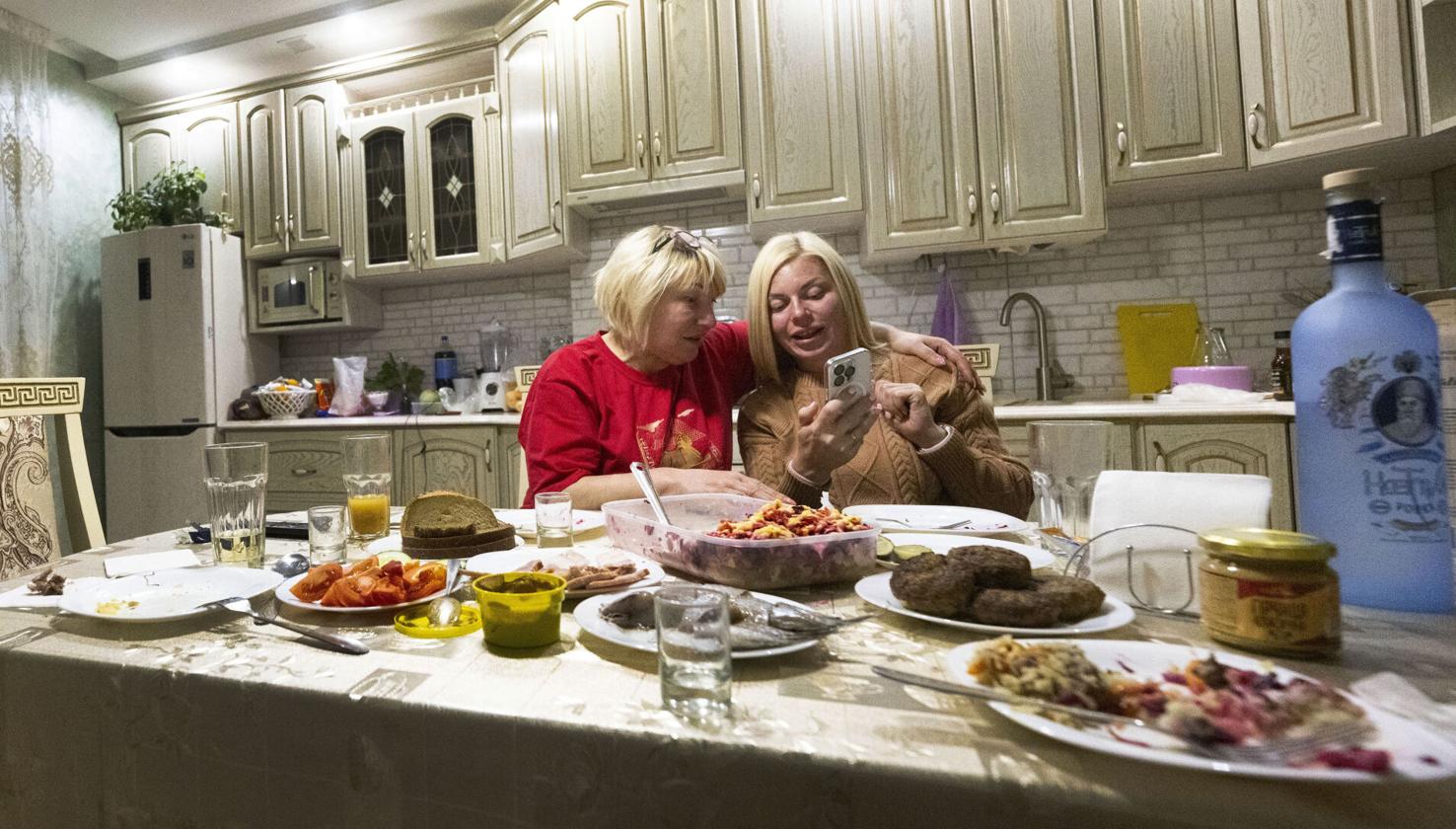
Before Russia invaded Ukraine on Feb. 24, 2022, Malyk had lived a comfortable life in Svatove, in the Luhansk region of Ukraine, with her husband, Dmytro Malyk, and their two daughters, Liza, 16, and Vlia, 11. She owned a travel agency, a women’s clinic, and four other businesses. Her husband was a lawyer.
They loved to travel. They had just remodeled their home and owned a second home, an apartment, in the city of Kharkiv where they escaped to enjoy the fine dining and shopping of the big city. Life was good.
Everything changed on that February morning. Malyk woke to the explosions of rockets hitting their hometown. The Russians were attacking. She panicked at first, then woke her daughters. “It’s started,” she told them.
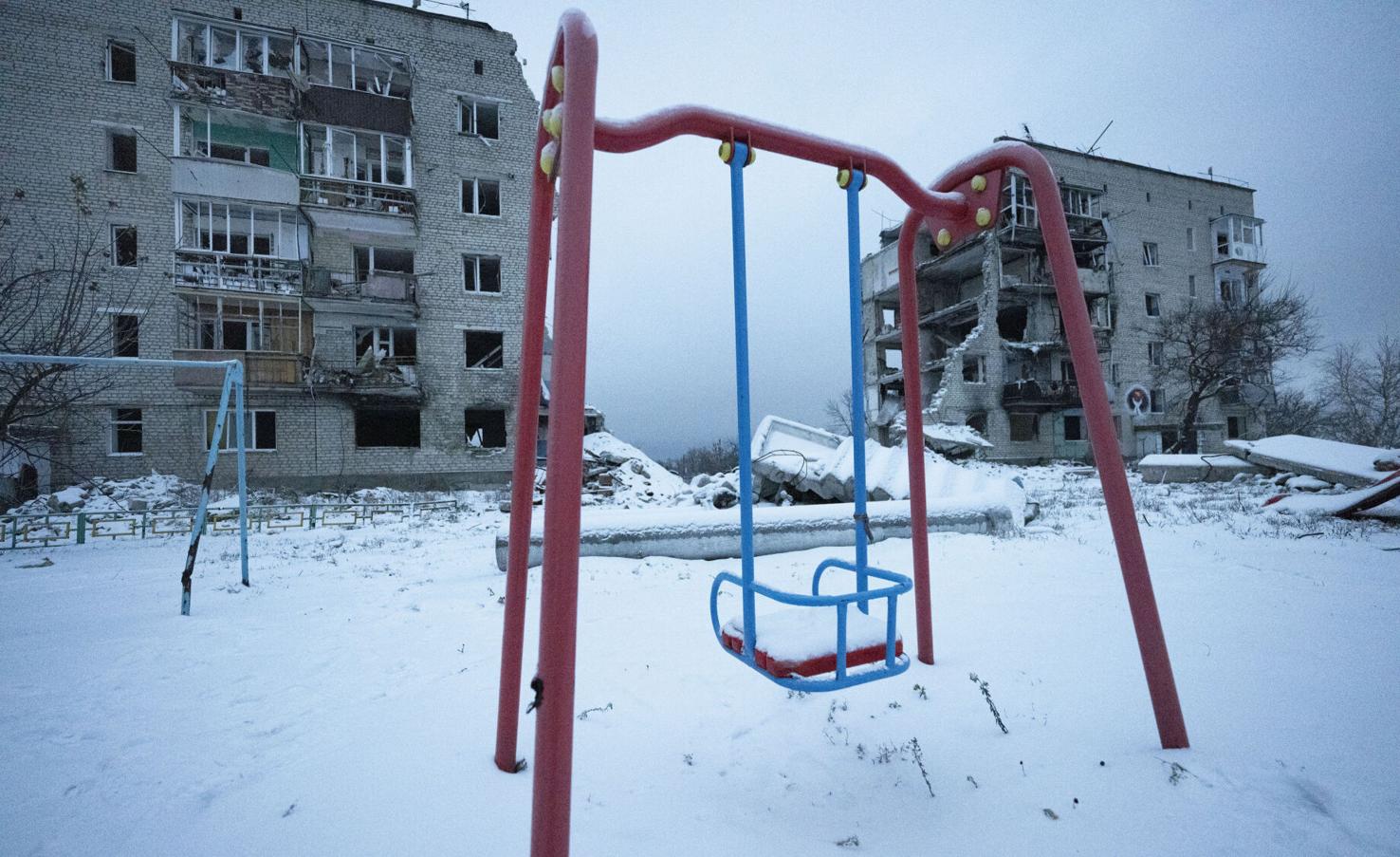
Malyk had a reason to worry. She was on a Russian security services “execution list” for her pro-Ukrainian activities in 2014 when Russia invaded Crimea, according to the former governor of Luhansk region, among others, who spoke of the matter. She helped provide humanitarian supplies to the people, military supplies to the resistance and even stole laptops from the Russians who had occupied her town. She was honored by the government of Luhansk for her actions.
The family escaped Svatove in two cars with only their backpacks. They drove through the war zone with Russian fighter jets dropping bombs on nearby villages. Three days of detours and side roads to avoid destroyed bridges and heavy traffic and they arrived at her parents’ home in Truskavets.
They shared the apartment with her family for 33 stressful days as the air raid sirens sent them to the basement for shelter every day. They watched as Russian collaborators marked targets on the top of adjacent apartments for the Russian fighter jets to attack.
“Very scary,” Malyk said.
Her oldest daughter, Liza, began to have panic attacks from the air raids. Patches of gray hair appeared on her scalp.
“Knew we couldn’t stay here,” Malyk said. “We couldn’t lose our daughter.”
She took her daughters to Poland, but that didn’t last, either. Malyk said too many people and too busy with the thousands of other Ukrainian refugees. They returned to Truskavets.
“One day I understood we would never come back home,” she said. “Had to build a new life from zero.”
Yana Malyk and her family found that new life in Colorado Springs — with the help of the Luckett family.
Marc and Whitney Luckett didn’t have any ties to Ukraine before the war, but they wanted to do something to help the Ukrainian people when Russia invaded. They learned of a program through a college friend of Whitney Luckett’s in which U.S. families could sponsor Ukrainian refugees. They signed up and received hundreds of emails a day from Ukrainians seeking a U.S. sponsor. Refugee families with six children and two grandparents, for example. The Lucketts didn’t have that kind of room.
Finally, an email from 16-year-old Liza Malyk, fluent in English, caught their eye. One FaceTime meeting later and the Lucketts and Malyks were matched. The sponsorship process was “clunky and clumsy,” Marc Luckett said, but the two families were united on July 21, 2022. Marc drove to Denver International Airport at midnight to pick up Yana and her two children. They had two suitcases among them, all other worldly possessions left behind.
“Marc welcomed us with yellow and blue balloons,” Malyk said, the colors of the Ukrainian flag.
Her husband, Dmytro, joined them a couple months later.
After settling into life in the United States, Malyk wanted to help her countrymen back home. The winter was beginning to take hold in Ukraine and the people in the Luhansk region were without power. In Colorado Springs, Ukraine Power was born.
Malyk and the Lucketts started the nonprofit in November 2022 to help the people back in Ukraine. Since then, Ukraine Power has raised close to $150,000, and works with the local governments in Ukraine to help provide aid via 25 hubs throughout country. The hubs provide meals, temporary shelter, generators, medical services, internet service, and laptops to children for remote learning. Perhaps most important, the hubs help the tens of thousands displaced Ukrainians with their documents and banking needs.
“We are in this for the long haul,” Ukraine Power treasurer Marc Luckett said. “Even if the war ended tomorrow, it’s going to take a decade to rebuild Ukraine and we plan to be here as long as we can to continue to support Ukraine and the people of Ukraine.”
After a day of rest and time with her parents, Malyk left Truskavets for the 21-hour train ride to Dnipro to begin the mission that had brought her back home. For the next nine days she would visit the government refugee hubs. “It’s very important to make a report for (Ukraine Power) donors,” Malyk said. “I wanted to show people no corruption.”
The train’s sleeping compartments were simple but comfortable. There were two benches on either side that served as single beds with a small table in the middle. An electric outlet above the door opposite the window served as a charging station for her cellphone.
After snacking on the Polish donuts and other snacks she bought in Truskavets, she settled in for the overnight trip. The darkness was interrupted by the flash of anti-aircraft missiles firing at incoming Russian rockets and drones.
“I woke up because it was very loud and bright,” Malyk said. “Couldn’t understand what it was at first. I looked out the window and saw lots of rockets. Thought it was something with my brain.”
The next morning, she learned it was real. The Russians had fired dozens of missiles in an attack on Kyiv.
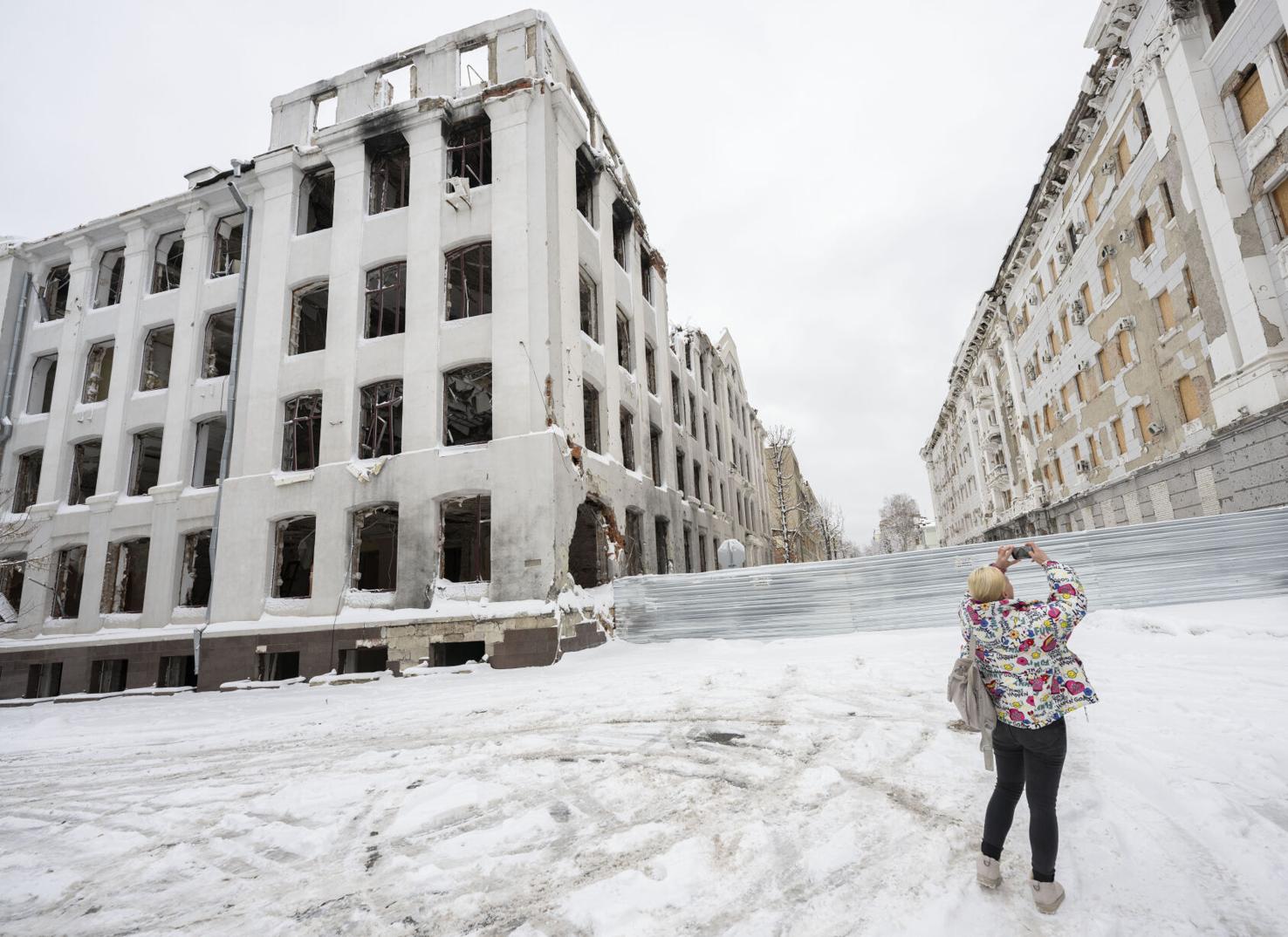
The train arrived in Dnipro at 9:35 a.m. and Kolomijtsev Oleksandr, the head of the Department for Reconstruction and Development of Infrastructure in Dnepropetrovsk, met her at the station. He carried her bags and led her to a car with a driver who would take Malyk on a tour of hubs in Ukraine’s fourth largest city.
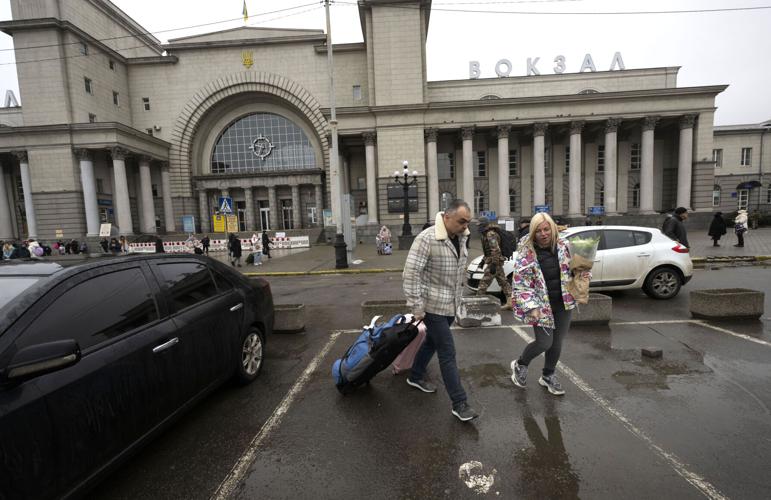
Malyk was there to meet the people she works with directly from Colorado. A unique feature about Ukraine Power is that Malyk deals one on one with officials in the hubs, responding daily to requests.
“We let the Ukrainians determine where the donations go,” Marc Luckett said. “And there would be no Ukraine Power without Yana. She is our secret weapon.”
The first hub was downtown. Workers were unloading food bags from a van into the heated tent outside the building for the 50 refugees a day who visit for supplies.
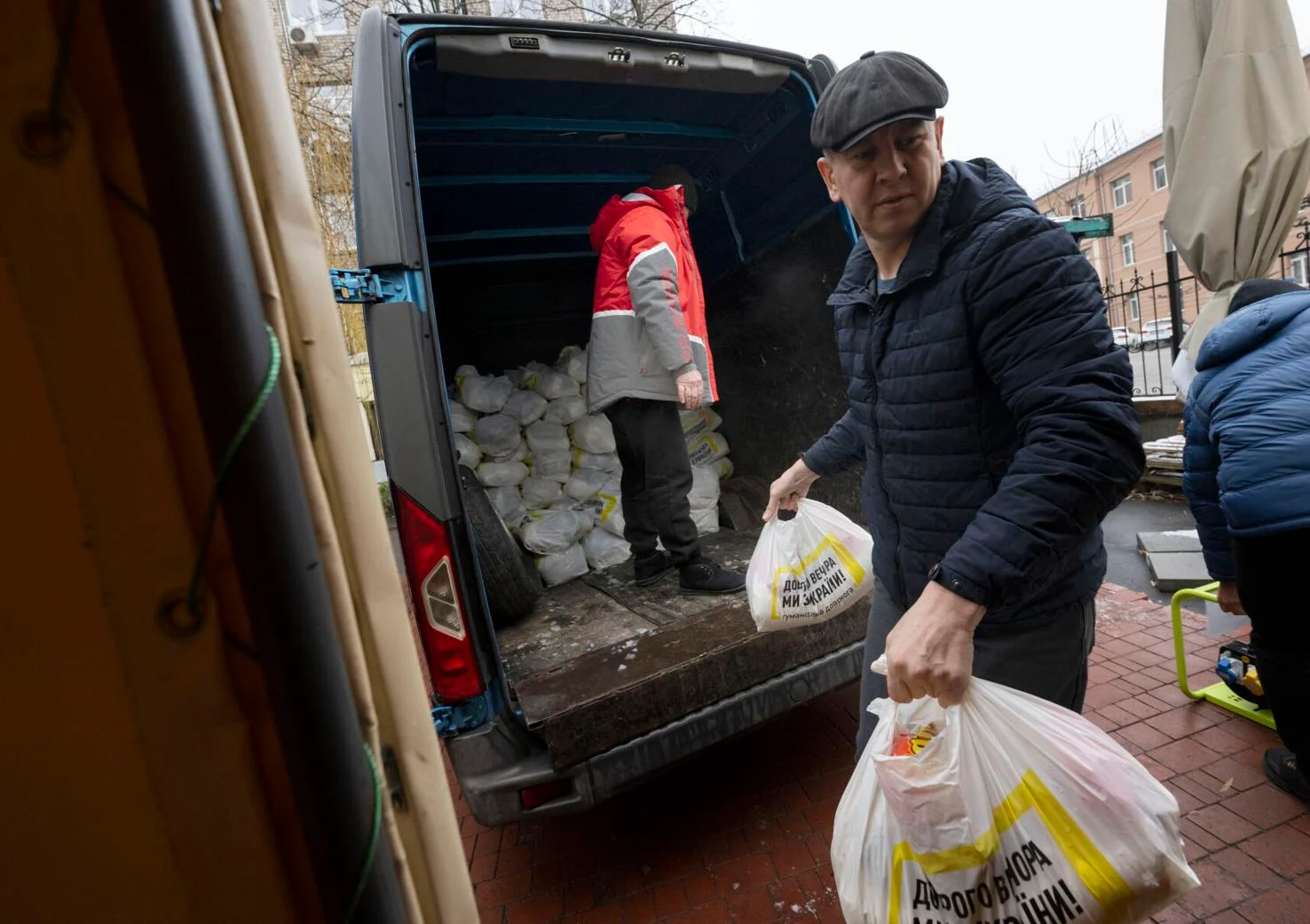
Olena Lytvyhivk, the administrator for the hub, leads Malyk inside the old stone building for a tour. They walk up the cement stairs to the second floor where people are working in a call center, helping refugees. If they can’t help, they direct them to an agency that can.
Malyk noticed one of the portable heaters Ukraine Power had purchased in the corner and walks over to warm her hands. Down the hall, counselors Diana Vladykina and Maryna Starovoitova help nine children make Christmas crafts with construction paper, markers, and glue. Their parents sit and watch from the edge of the room. The crafts are a diversion from the war.
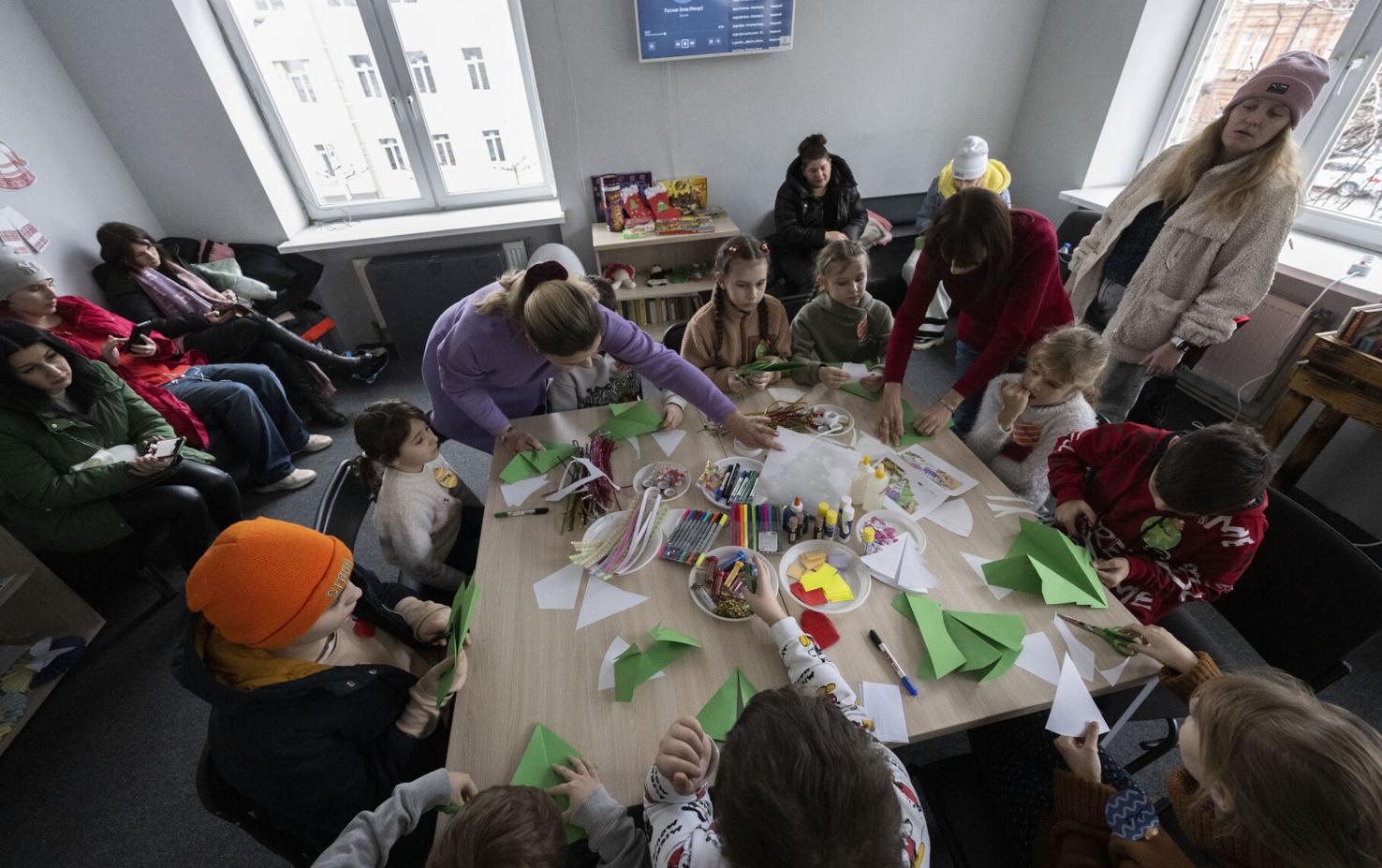
After talking to a group of administrators outside, Malyk is driven to the next hub inside the cultural center of an old Soviet factory. Refugees were sorting through piles of donated clothes in the lobby, with its 1950s Soviet design. In an office down a darkened hall, worker Yuliya Titova helps an elderly refugee start a new bank account on the internet.
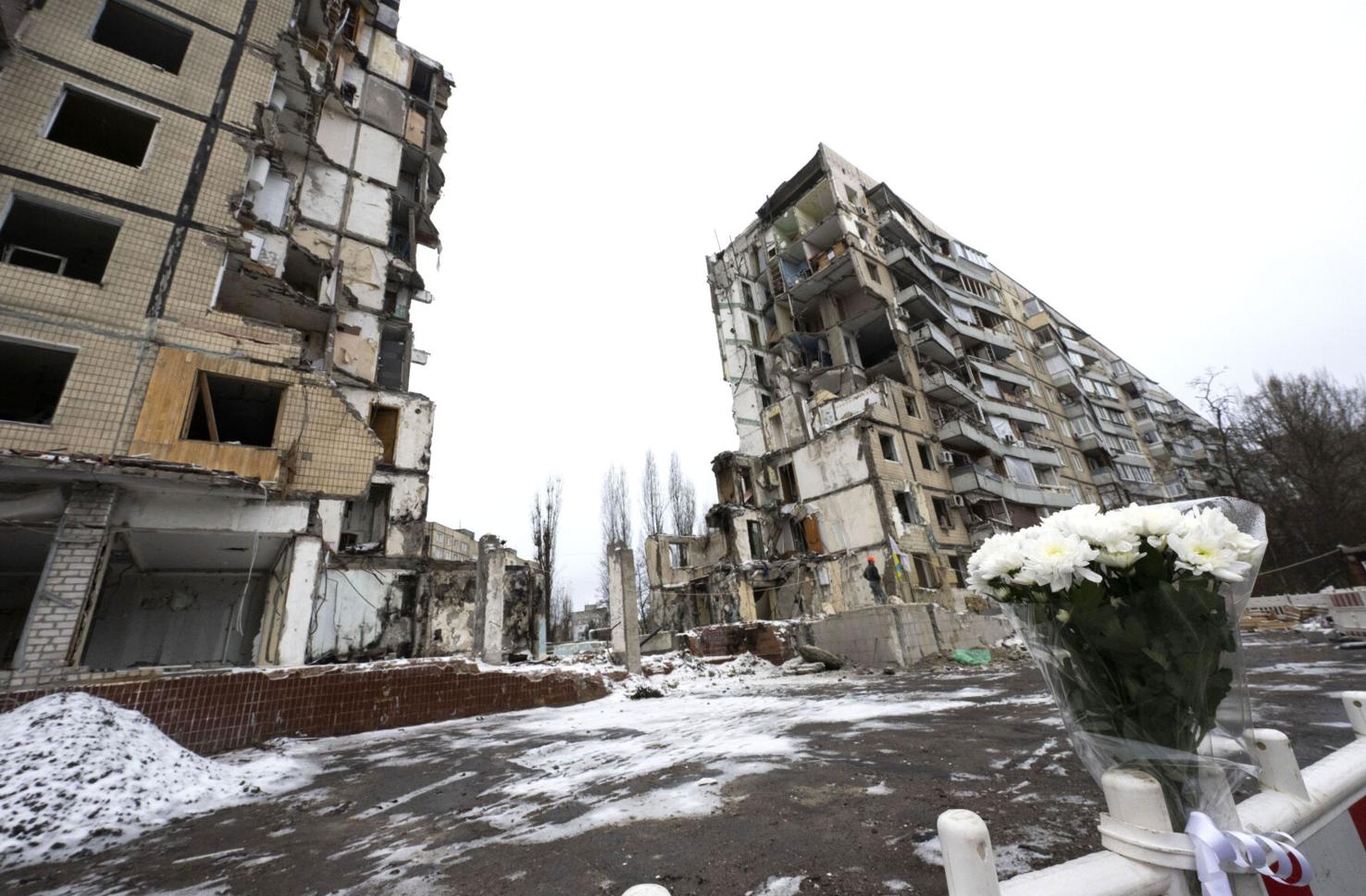
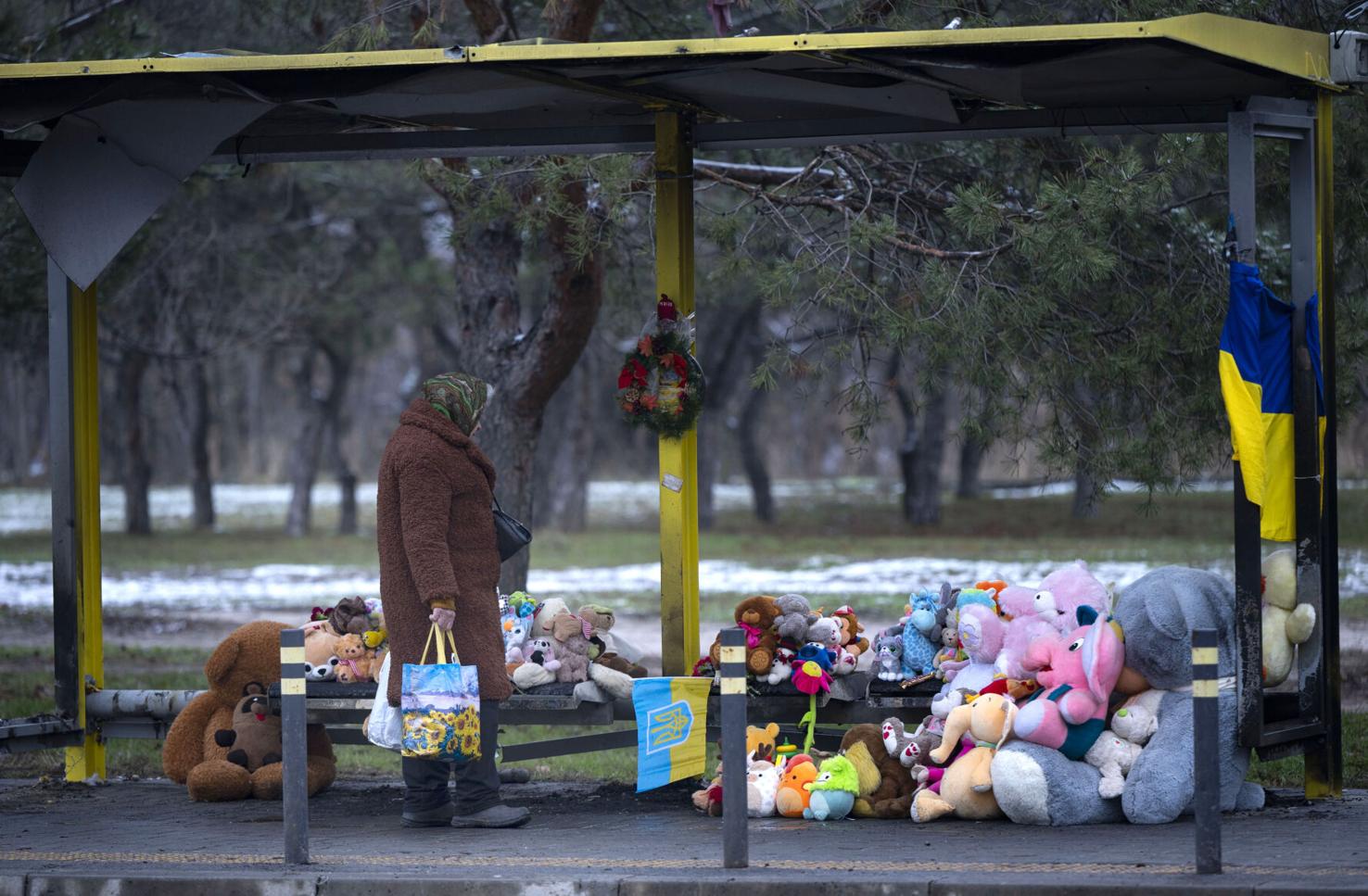
Next on the tour is an apartment building hit by a Russian missile in January of 2023. Also a Cold War era building, the nine-story apartment complex has a gaping hole in the middle. The attack killed 46 people, including six children, and injured 80 more. Eight are still missing from the attack.
“When I saw the building destroyed in Dnipro, I knew my soul was broken because I thought about how many people died in that building,” Malyk said. “Lots of them refugees who left their houses in the occupied territory, moved to Dnipro and died there.”
After Dnipro, Malyk caught a ride to Kharkiv, then a train to Kyiv and Lviv. She visited six hubs and two shelters that help the refugees from her Luhansk region of Ukraine.
She knows Ukraine, the people, and their needs. Regional governors in Ukraine reach out to the Malyks.
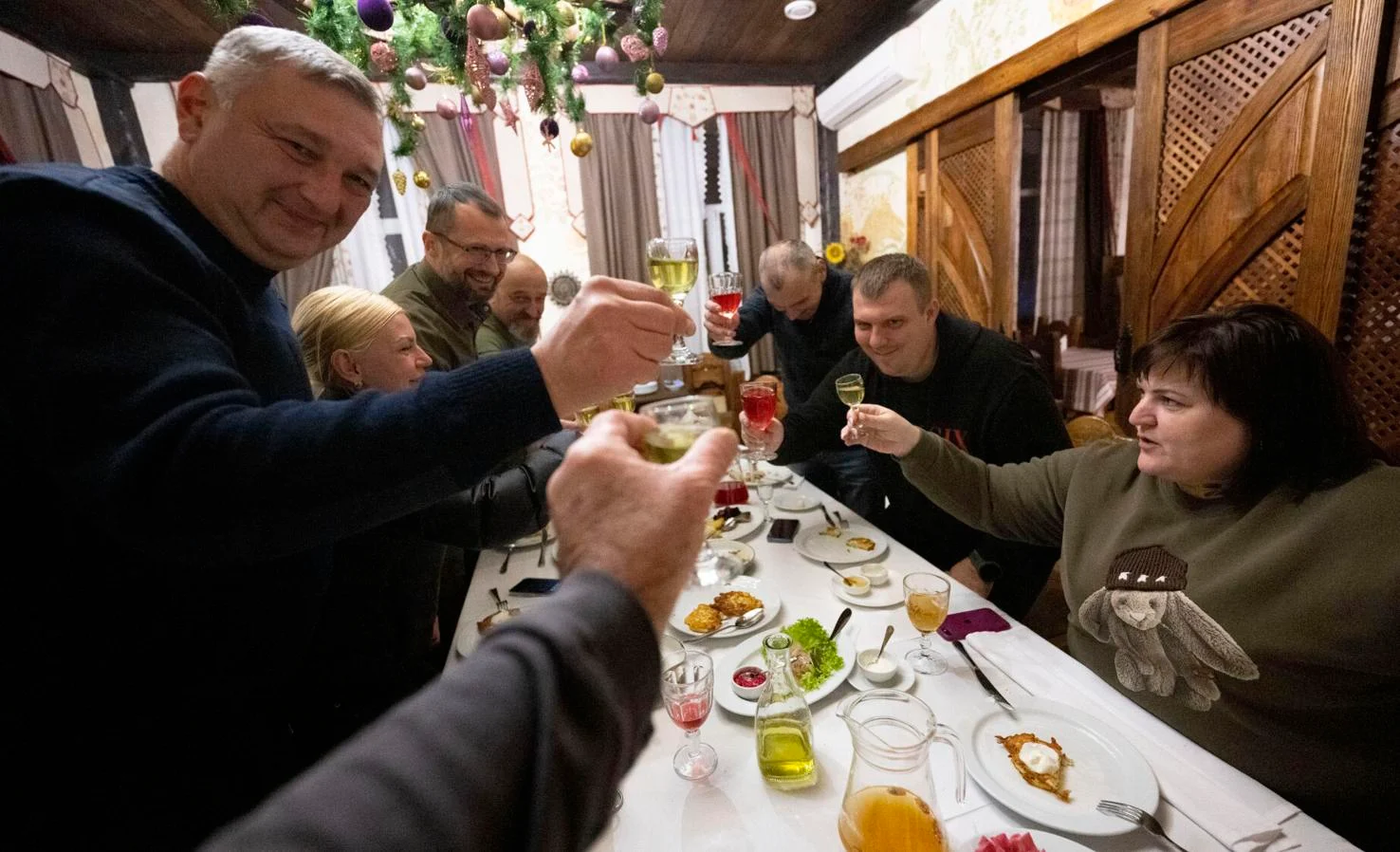
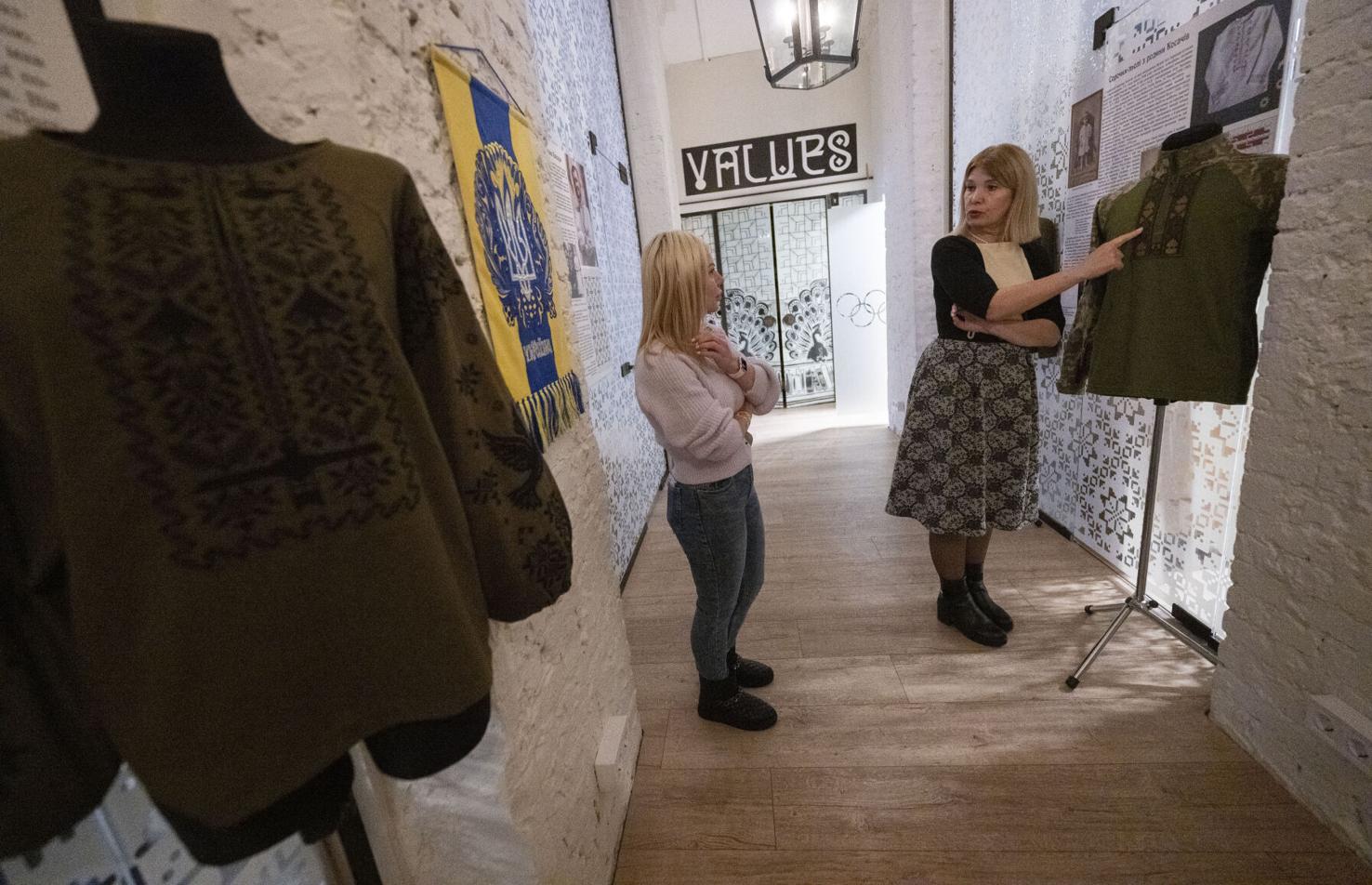
The Ukrainians greeting her on this trip expressed their appreciation for what she and her nonprofit and the donations from Colorado Springs have done.
Viktor Zozulya, mayor of the town Nves’ke, population 136, drove the 121 miles to Kharkiv from his small town in the Russian occupied territory to thank Malyk for Ukraine Power’s generosity.
“We are thankful for what the American nation has done,” Zozulya said through an interpreter.
After her work in Lviv, Malyk returned to Truskavets to spend more time with her parents. They shared more meals — more precious time together. The night before leaving Ukraine, Malyk was torn. She worried about her parents, and her husband’s parents who live in Kremena, in the Russian occupied territory on the eastern edge of Ukraine.
“Every day you think about they can die,” Malyk said about the parents. “It’s very hard.”
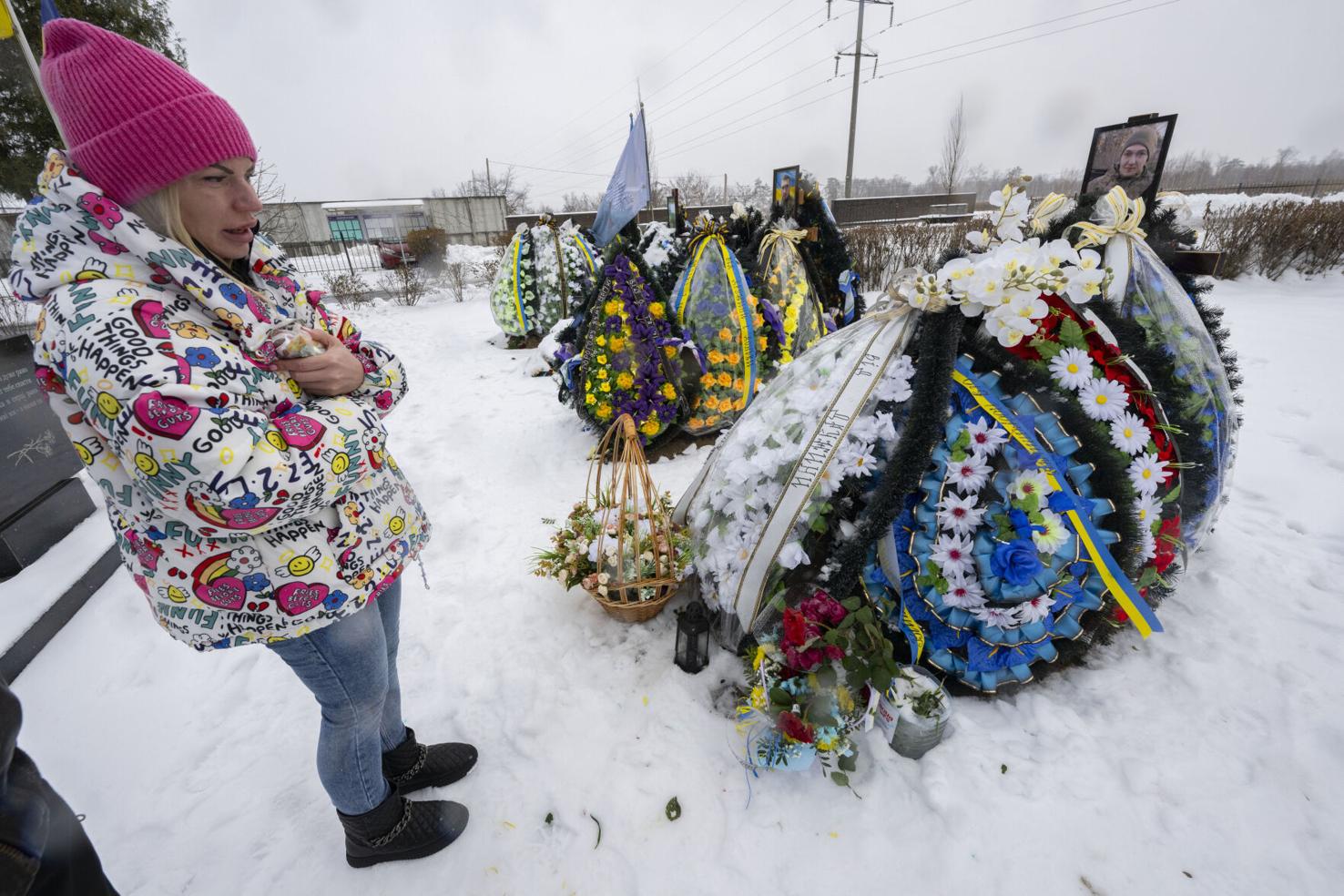
She didn’t want to leave her native country but knew her own family’s future was elsewhere.
“When I left Ukraine again it was a very hard last night because I missed my children, my husband who were in America,” Malyk said. “But at the same time, I didn’t want to leave my parents. My parents will never leave Ukraine.”
Note: Ukraine Power is an organization dedicated to providing power and light to Ukraine during dark days. The Ukraine faces an immediate need for electric generators. These generators provide heat and the ability to cook, making it possible to survive the harsh Ukrainian winter. To donate, click here.
